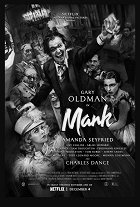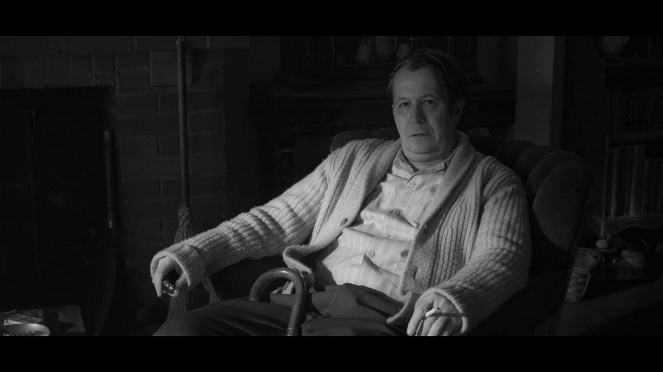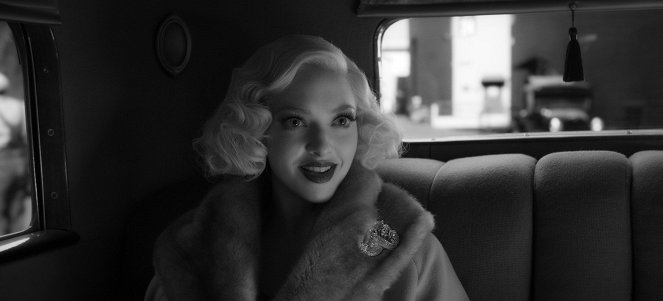Directed by:
David FincherScreenplay:
Jack FincherCinematography:
Erik MesserschmidtCast:
Gary Oldman, Amanda Seyfried, Lily Collins, Charles Dance, Tom Burke, Joseph Cross, Tuppence Middleton, Leven Rambin, Tom Pelphrey, Arliss Howard (more)VOD (1)
Plots(1)
1930s Hollywood is reevaluated through the eyes of scathing wit and alcoholic screenwriter Herman J. Mankiewicz as he races to finish Citizen Kane. (Netflix)
Videos (2)
Reviews (14)
In the first minutes, if not seconds, I was amazed by how Mank looks - truly like it was filmed 80 years ago, a beautifully restored film that made it to Netflix this year (and, sadly, not to movie theatres where it REALLY deserves to be). The best part is that the amazement didn't leave me by the end of the film, and it is also great in terms of the script, the actors (Gary Oldman is even better than you think), actresses (the magical Amanda Seyfried and Lily Collins) and music (untypical but excellent Reznor and Ross). If you don't want to watch Citizen Kane before Mank, then after Mank you will. And then you'll probably watch Mank again.
()
David Fincher is one of the greatest directorial aces and has long since established a position where we know that anything he makes will be at least interesting, and Mank is no exception. However, I suffered quite a bit as a viewer with it. This trip to 1940s Hollywood is no doubt a good film, and the depiction of the era, the politicking of the studios, and the life of a screenwriter who, though he drank a lot, could be all the more honest, is definitely worth watching, even if I was bored from the halfway point on. All those objective and technical qualities I can understand and subscribe to, Fincher knows what he's doing and he does it damn well. It's just that this time he didn't hit the mark for me in theme or indeed form. I simply didn't enjoy watching his new film. And he didn't want to make it any easier. Great atmosphere, a perfect Gary Oldman, great sets and music, but behind all that is the all-too-ordinary story of an all-too-ordinary man. I expect something more progressive from Fincher. Maybe, since he was directing his late father's script, he wanted to keep himself a little bit in check. I could understand that, but I'm not sure it was worth it.
()
Like Nolan, Finch this year has taken on an overwrought variation of his fetish beyond the parameters of viewer-friendly cinema. Mank is his Grand Hollywood Retro-Spectacle. Or rather his now-deceased dad, who was born during the period depicted and whose screenplay was sitting in David’s drawer, waiting for the benevolent Netflix. The enchantment of the visionary entrepreneurialism of the Hollywood studio bosses, high-society parties and debates in the opulent halls of luxury mansions, and an intimate portrait of a gifted screenwriter who was more of an outsider alcoholic despite his eccentricity and constant presence in the circles of kindred professionals. Though all of this may sound wonderful and appealing (and it’s also incredibly authentically executed cinematically), the result is problematic. Fincher interweaves the film’s world with the politics of the given setting and period, which viewers aren’t interested in, jumping around in time and between characters that he says little or nothing about and, in the dishevelled narrative, only barely manages to concentrate on the motivations of the main character, whom the whole film is supposed to be about. It is wonderfully entertaining in some individual aspects (a visit to the studios and an exterior set) and evokes a mature creative cleverness, but elsewhere it is boring with its pointlessness and empty dialogue. The character of William Hearst (Charles Dance), who was supposedly Mank’s inspiration for writing Citizen Kane, is sidelined here and no intellectual parallel is drawn between Welles’s and Fincher’s films. The moods, poses and opinions that are stuffed into this evidently artistically ambitious work will certainly please a few academics, historians, film buffs and political scientists all rolled into one, but I prefer the more narratively refined and stimulating pieces in this mold – whether the cynically intellectual (Altman’s The Player) or simply heartfelt (Burton’s Ed Wood). Of the actors, Arliss Howard comes closest to earning an Oscar for his excellent portrayal of L.B. Mayer. The walk around MGM with his emotive monologue is one of the movie scenes of the year. “This is the business where the buyer gets nothing for his money but a memory. What he bought still belongs to the man who sold it. That’s the real magic of the movies.”
()
A sea of name dropping, perfectly executed visuals, but emotionally speaking, Mank only barely whispered to me here and there, rather than speaking to me coherently. It is the completion of a homework assignment for me and David Fincher, saved from downfall primarily by its unintentional thematic relevance.
()
Mank certainly doesn't hide its Oscar ambitions and at the same time represents one among a number of films where (academic) form rolls over (audience-friendly) content. The black-and-white visuals, the fading blackouts, the vintage opening credits and the premise of the film take the viewer back to the golden era of Hollywood, a time of big studios, bright stars and screenwriting teams and solitaires. David Fincher's Mank is a skillfully made biopic, but for most of its running time it lacks any dramatic or deeper scene – it wasn't until near the end, when Mank's pours out of his heart while watching Citizen Kane, that I felt stronger emotions. A promising film in terms of acting and themes, but one that limps along on a lackluster execution.
()



Ads